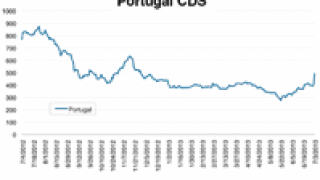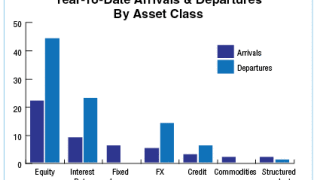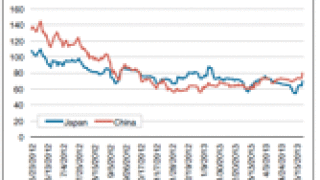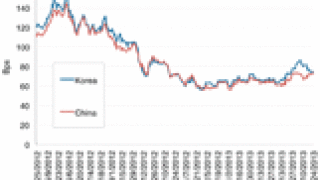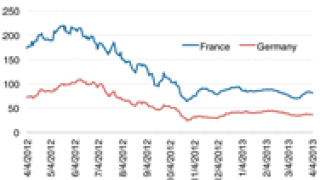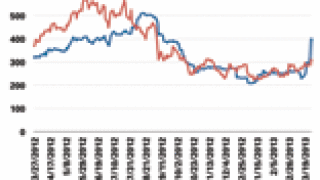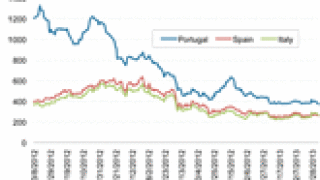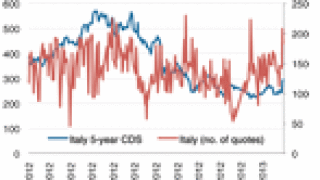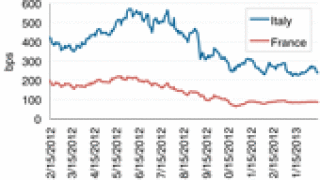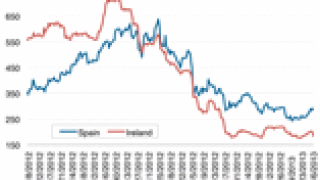Sovereign Credit Commentary
-
“The crisis in Europe is over,” declared French President François Hollande last month during a visit to Japan. But it appears that EU politicians may be once again guilty of complacency after Portugal reminded the world that the crisis was dormant, rather than extinct.
-
Barclays made the most senior hire of the week, appointing ex-Goldman Sachs trader Michael Winkelgrund as head of exchange-traded fund trading. Deutsche Bank, meanwhile, hired Monty Lee as a senior index options trader from Barclays. In Asia Pacific, Nicholas Smith has replaced PJ Andersson as global head of pan-Asian equity derivative and convertible sales at Citigroup, after the latter left the firm last week.
-
Credit spreads across the globe have rallied on the back of Abenomics, the unconventional, expansionary monetary policy implemented by the Bank of Japan in April.
-
Korea’s sovereign CDS recovered from a recent bout of widening and was back to its usual place–flat against China.
-
Another week in the sovereign markets and yet more barriers are being broken down.
-
After the drama of the Cyprus bailout it was back to focusing on economic fundamentals in the sovereign market.
-
A bailout for Cyprus was agreed before the deadline, as expected. However, the relief rally that often follows such announcements didn’t materialize, and the EU only had itself to blame.
-
Political turmoil in Italy has been the main sovereign credit story in the first-quarter, but the periphery has proved to be surprisingly resilient since the inconclusive election in February.
-
Negative catalysts have been few and far between in recent months, but one arrived with a vengeance this week in the form of an inconclusive Italian election.
-
France and Germany have always been at the core of the eurozone, and the European Union project as a whole.
-
The Italian elections are but days away, and the sovereign credit markets could be forgiven for being jittery. However, they put in a solid performance over the second week of February, with spreads in the Eurozone’s periphery tightening significantly.
-
Spain and Italy were always going to be the most topical of the eurozone peripherals in the first-quarter of 2013, and they have lived up to their billing so far.

